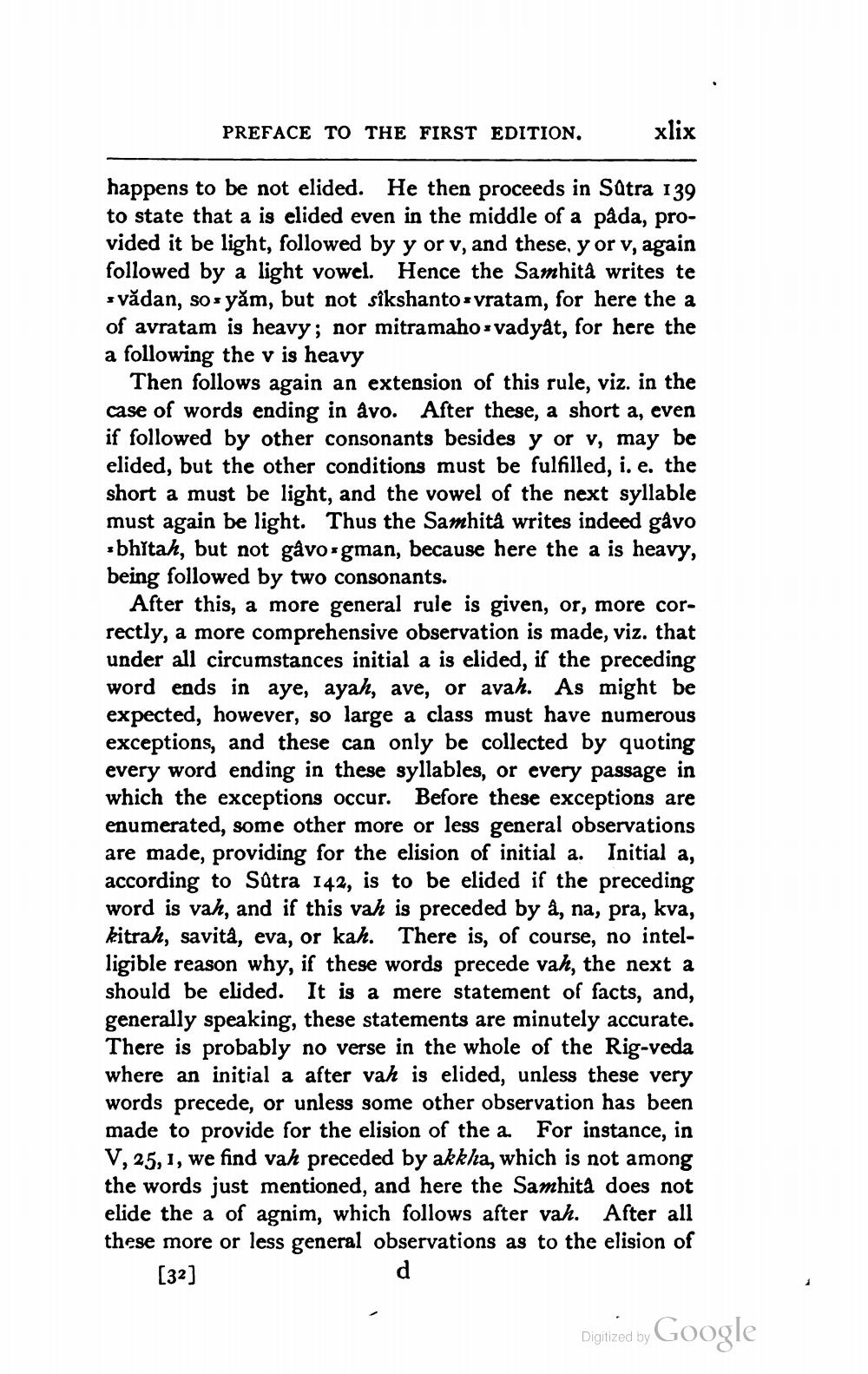________________
PREFACE TO THE FIRST EDITION.
xlix
happens to be not elided. He then proceeds in Satra 139 to state that a is elided even in the middle of a pâda, provided it be light, followed by y or v, and these, y or v, again followed by a light vowel. Hence the Samhità writes te svădan, sos yăm, but not sikshanto-vratam, for here the a of avratam is heavy; nor mitramahos vadyât, for here the a following the v is heavy
Then follows again an extension of this rule, viz. in the case of words ending in avo. After these, a short a, even if followed by other consonants besides y or v, may be elided, but the other conditions must be fulfilled, i. e. the short a must be light, and the vowel of the next syllable must again be light. Thus the Samhità writes indeed gåvo sbhỉtah, but not gâvo-gman, because here the a is heavy, being followed by two consonants.
After this, a more general rule is given, or, more correctly, a more comprehensive observation is made, viz. that under all circumstances initial a is elided, if the preceding word ends in aye, ayah, ave, or avah. As might be expected, however, so large a class must have numerous exceptions, and these can only be collected by quoting every word ending in these syllables, or every passage in which the exceptions occur. Before these exceptions are enumerated, some other more or less general observations are made, providing for the elision of initial a. Initial a, according to Satra 142, is to be elided if the preceding word is vah, and if this vah is preceded by à, na, pra, kva, kitrah, savità, eva, or kah. There is, of course, no intelligible reason why, if these words precede vah, the next a should be elided. It is a mere statement of facts, and, generally speaking, these statements are minutely accurate. There is probably no verse in the whole of the Rig-veda where an initial a after vah is elided, unless these very words precede, or unless some other observation has been made to provide for the elision of the a. For instance, in V, 25, 1, we find vah preceded by akkha, which is not among the words just mentioned, and here the Samhità does not elide the a of agnim, which follows after vah. After all these more or less general observations as to the elision of
[32]
Digitized by Google




